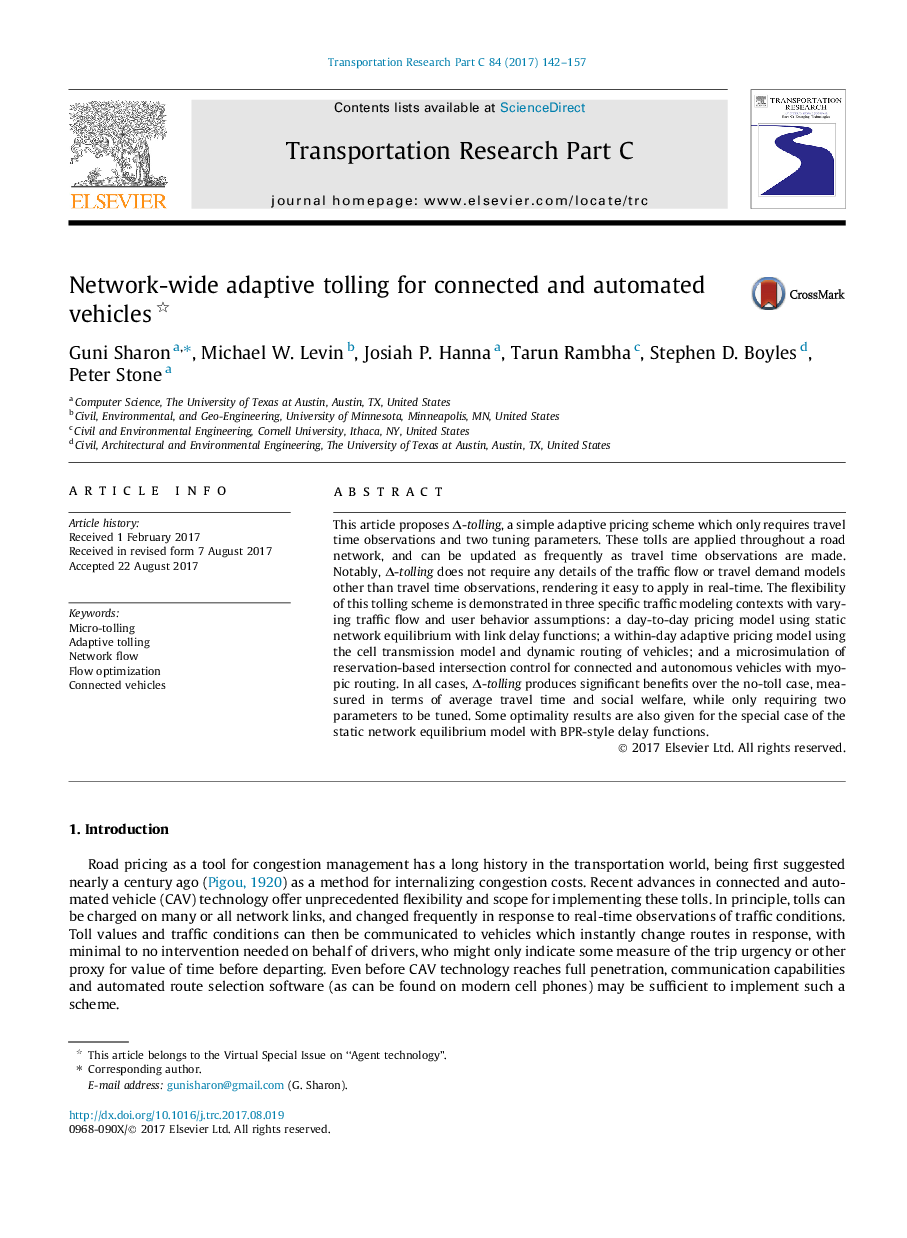| Article ID | Journal | Published Year | Pages | File Type |
|---|---|---|---|---|
| 4968429 | Transportation Research Part C: Emerging Technologies | 2017 | 16 Pages |
Abstract
This article proposes Î-tolling, a simple adaptive pricing scheme which only requires travel time observations and two tuning parameters. These tolls are applied throughout a road network, and can be updated as frequently as travel time observations are made. Notably, Î-tolling does not require any details of the traffic flow or travel demand models other than travel time observations, rendering it easy to apply in real-time. The flexibility of this tolling scheme is demonstrated in three specific traffic modeling contexts with varying traffic flow and user behavior assumptions: a day-to-day pricing model using static network equilibrium with link delay functions; a within-day adaptive pricing model using the cell transmission model and dynamic routing of vehicles; and a microsimulation of reservation-based intersection control for connected and autonomous vehicles with myopic routing. In all cases, Î-tolling produces significant benefits over the no-toll case, measured in terms of average travel time and social welfare, while only requiring two parameters to be tuned. Some optimality results are also given for the special case of the static network equilibrium model with BPR-style delay functions.
Related Topics
Physical Sciences and Engineering
Computer Science
Computer Science Applications
Authors
Guni Sharon, Michael W. Levin, Josiah P. Hanna, Tarun Rambha, Stephen D. Boyles, Peter Stone,
